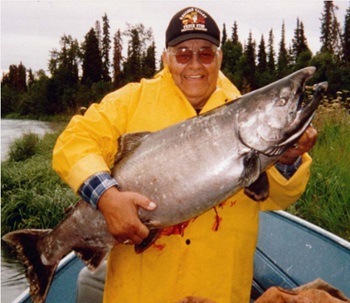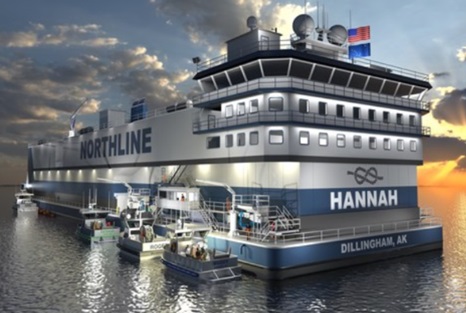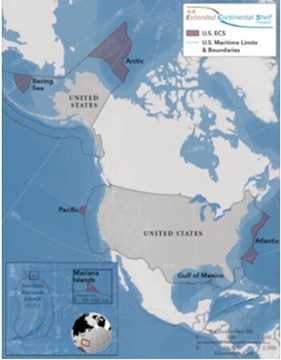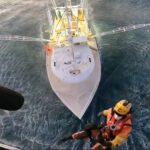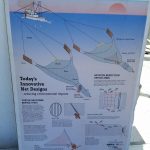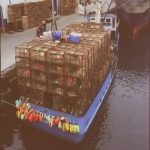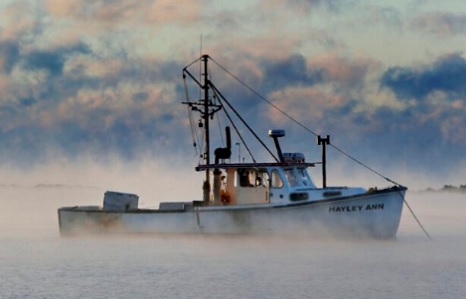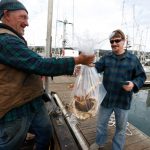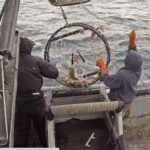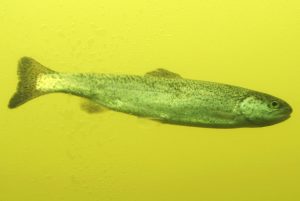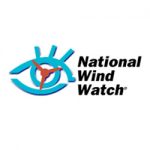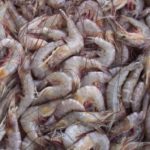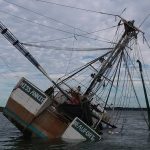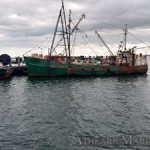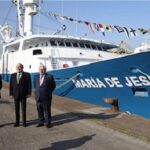Category Archives: North Pacific
Pot Half Full: Cordova boats find success in Kodiak crab despite uncertainties
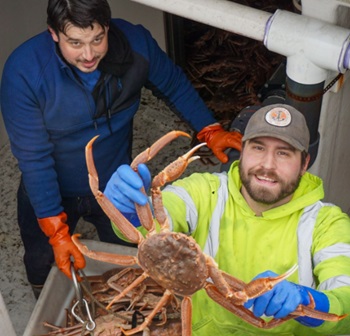 As crab fisheries around the state become increasingly unstable over the last two years, fishermen have found reliable opportunities in Kodiak. Several Cordova vessels and captains journeyed to Kodiak this past month to participate in the 2024 Kodiak tanner crab fishery, a state fishery managed by the Alaska Department of Fish and Game (ADF&G). The fisheye opened at noon on Jan. 15 and closed on Jan. 21. This year Guideline Harvest Levels (GHL) allowed for 3,480,000 pounds of crab to be harvested by the fleet, down from the 7,300,000 pounds GHL in 2023. Last year the fleet staged a strike over the low grounds price of crab resulting in more than a week’s delay to the season. Although the price rose only marginally this season, the fleet went fishing on the regularly scheduled opener. Photos, more, >>click to read<< 14:37
As crab fisheries around the state become increasingly unstable over the last two years, fishermen have found reliable opportunities in Kodiak. Several Cordova vessels and captains journeyed to Kodiak this past month to participate in the 2024 Kodiak tanner crab fishery, a state fishery managed by the Alaska Department of Fish and Game (ADF&G). The fisheye opened at noon on Jan. 15 and closed on Jan. 21. This year Guideline Harvest Levels (GHL) allowed for 3,480,000 pounds of crab to be harvested by the fleet, down from the 7,300,000 pounds GHL in 2023. Last year the fleet staged a strike over the low grounds price of crab resulting in more than a week’s delay to the season. Although the price rose only marginally this season, the fleet went fishing on the regularly scheduled opener. Photos, more, >>click to read<< 14:37
Pair of bills makes electronic monitoring of state-regulated fisheries a possibility
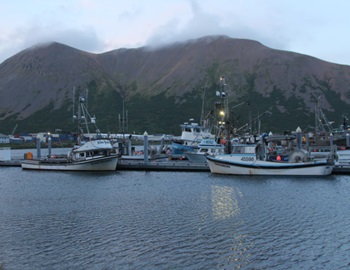 Nels Evens is a longliner and gillnetter, and the executive director of the Petersburg Vessel Owners Association. He says he’s not sure what the bills’ aim is. “Because it is so broad, and we don’t understand what it’s really trying to get at, we’re not supportive of it,” he said. The pair of bills – Senate Bill 209 and House Bill 294 – stem from a discussion at last year’s Board of Fisheries meeting. The Board was trying to figure out how to enforce regulations that require Area M fishermen to keep chum salmon, instead of tossing them back in favor of much more valuable King salmon. Area M is along the Alaska Peninsula and Eastern Aleutians. It intercepts some chum salmon bound for western Alaska. more, >>click to read<< 08:53
Nels Evens is a longliner and gillnetter, and the executive director of the Petersburg Vessel Owners Association. He says he’s not sure what the bills’ aim is. “Because it is so broad, and we don’t understand what it’s really trying to get at, we’re not supportive of it,” he said. The pair of bills – Senate Bill 209 and House Bill 294 – stem from a discussion at last year’s Board of Fisheries meeting. The Board was trying to figure out how to enforce regulations that require Area M fishermen to keep chum salmon, instead of tossing them back in favor of much more valuable King salmon. Area M is along the Alaska Peninsula and Eastern Aleutians. It intercepts some chum salmon bound for western Alaska. more, >>click to read<< 08:53
Unalaska pushes back against proposed bycatch restrictions on pollock fishery
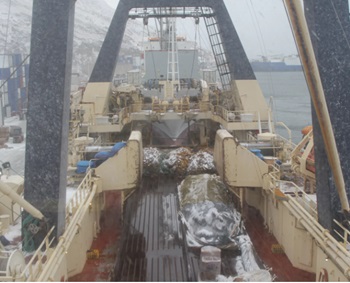 Unalaska leaders are pushing back against a proposed petition to eliminate Chinook bycatch in the Bering Sea Alaska pollock fishery. Nearly 100 tribes and communities in western Alaska, including the Association of Village Council Presidents, signed an emergency petition that would set a zero-bycatch limit on Chinook salmon in the pollock trawl fishery for 180 days. Unalaska Mayor Vince Tutiakoff Sr. said in a letter that a zero-cap would “effectively shut down the entire pollock fishery of the Bering Sea,” and create a “dire situation” for Unalaska. links, more, ??click to read<< 11:19
Unalaska leaders are pushing back against a proposed petition to eliminate Chinook bycatch in the Bering Sea Alaska pollock fishery. Nearly 100 tribes and communities in western Alaska, including the Association of Village Council Presidents, signed an emergency petition that would set a zero-bycatch limit on Chinook salmon in the pollock trawl fishery for 180 days. Unalaska Mayor Vince Tutiakoff Sr. said in a letter that a zero-cap would “effectively shut down the entire pollock fishery of the Bering Sea,” and create a “dire situation” for Unalaska. links, more, ??click to read<< 11:19
No-farm farm
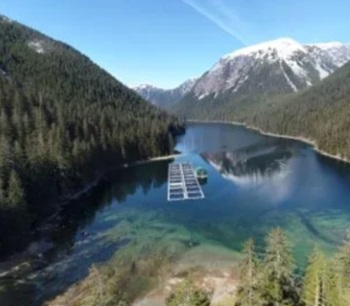 In one of the stranger twists in the strange world of global salmon marketing, Alaska’s non-farm fish farmers played a role in convincing the Canadian city of Ottawa to order removal of billboards protesting farmed salmon. The reason? “False advertising.” And now the same environmental group involved in Ottawa – Wild First – is under fire in British Columbia for running radio advertisements claiming salmon farms have pushed wild Pacific salmon to “the brink of extinction,” according to the news website Business in Vancouver (BIV). That claim is about as far from the truth as one can get. Salmon in the Pacific are today at numbers never seen in recorded history, but most of them are pink salmon. Some scientists contend this explosion of pinks due in part to the free-range fish farming efforts of hatchery operators in Alaska and Russia has reached the point where it is wreaking havoc with the entire North Pacific ecosystem. more, >>click to read<< 07:50
In one of the stranger twists in the strange world of global salmon marketing, Alaska’s non-farm fish farmers played a role in convincing the Canadian city of Ottawa to order removal of billboards protesting farmed salmon. The reason? “False advertising.” And now the same environmental group involved in Ottawa – Wild First – is under fire in British Columbia for running radio advertisements claiming salmon farms have pushed wild Pacific salmon to “the brink of extinction,” according to the news website Business in Vancouver (BIV). That claim is about as far from the truth as one can get. Salmon in the Pacific are today at numbers never seen in recorded history, but most of them are pink salmon. Some scientists contend this explosion of pinks due in part to the free-range fish farming efforts of hatchery operators in Alaska and Russia has reached the point where it is wreaking havoc with the entire North Pacific ecosystem. more, >>click to read<< 07:50
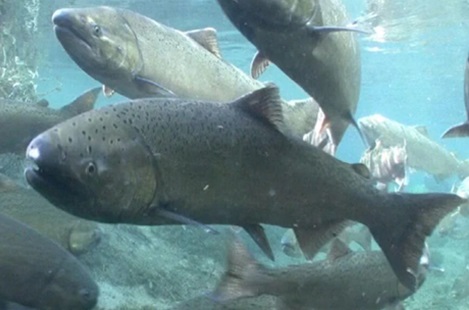
$20M+ in federal funds to California fisheries for disaster relief, $7M+ Oregon
More than $7,000,000 is going to Oregon fisheries as part of $42,000,000 in federal fishery disaster funding. Today, the U.S. Department of Commerce announced allocation of those funds for recovery from fishery disasters in Oregon, Alaska, California, Louisiana, Mississippi, and the Muckleshoot Indian Tribe and Yurok Tribe fisheries from 2017 to 2022. The federal funding will help ocean commercial fishermen in Oregon recover from significant economic losses in 2018, 2019, and 2020 from declining salmon populations. For California, U.S. Department of Commerce Secretary Gina Raimondo announced allocation of $20.6-million to address a fishery resource disaster that occurred in the 2023 Sacramento River Fall Chinook and Klamath River Fall Chinook Ocean and inland salmon fisheries. more, >>click to read<< 10:00
Trade groups and state unhappy with federal NOAA Fisheries management plan plan in public comments
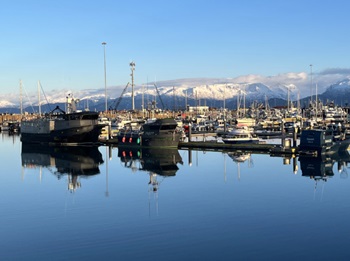 Public comment is in for a NOAA Fisheries management plan for Cook Inlet’s most productive drift fishing waters. In nearly 90 submitted public comments, cities, tribes, trade organizations and the state commissioner of Fish and Game express mixed and negative reactions to the plan. The Cook Inlet Exclusive Economic Zone, or EEZ, was the subject of a lawsuit by the United Cook Inlet Drift Association over management of the fishery, which starts three miles offshore and stretches from south 0 f Kalgin Island to Anchor Point. In response, the federal North Pacific Fishery Management Council closed the fishery in 2020, which was met with protest by Kenai Peninsula commercial fishermen. more, >>click to read<< 10:52
Public comment is in for a NOAA Fisheries management plan for Cook Inlet’s most productive drift fishing waters. In nearly 90 submitted public comments, cities, tribes, trade organizations and the state commissioner of Fish and Game express mixed and negative reactions to the plan. The Cook Inlet Exclusive Economic Zone, or EEZ, was the subject of a lawsuit by the United Cook Inlet Drift Association over management of the fishery, which starts three miles offshore and stretches from south 0 f Kalgin Island to Anchor Point. In response, the federal North Pacific Fishery Management Council closed the fishery in 2020, which was met with protest by Kenai Peninsula commercial fishermen. more, >>click to read<< 10:52
NTSB Issues Safety Alert on Personal Locator Devices for Mariners
 A new safety alert issued by the National Transportation Safety Board (NTSB) to provide each crewmember with a personal locator device. These devices improve a mariner’s chance of rescue during an emergency. During an emergency at sea, a mariner’s chance of survival decreases if search and rescue cannot quickly and accurately identify their location. Personal locator devices, such as personal locator beacons (PLB) or satellite emergency notification devices (SEND), can accurately pinpoint a person’s location. NTSB investigations found that currently available personal locator beacons provide a location accuracy of about 300 feet and a nearly instant search and rescue notification when activated. more, <<click to read<<17:24
A new safety alert issued by the National Transportation Safety Board (NTSB) to provide each crewmember with a personal locator device. These devices improve a mariner’s chance of rescue during an emergency. During an emergency at sea, a mariner’s chance of survival decreases if search and rescue cannot quickly and accurately identify their location. Personal locator devices, such as personal locator beacons (PLB) or satellite emergency notification devices (SEND), can accurately pinpoint a person’s location. NTSB investigations found that currently available personal locator beacons provide a location accuracy of about 300 feet and a nearly instant search and rescue notification when activated. more, <<click to read<<17:24
Keyport to take over crab quota after King Cove closure
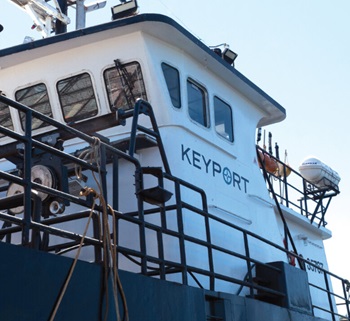 Edmonds-based Keyport LLC, a processor and supplier of wholesale wild-caught crab and frozen seafood, announced today, Jan. 29, that it will take over the crab quota left stranded after Peter Pan Seafood Co. recently decided to close its King Cove Alaska processing facility for the season. The closure in the middle of the season has left numerous crab harvesters with no alternative for delivering their catch. According to Keyport, its move to secure the quota “sends a lifeline to the Alaska crab fisheries and brings a stabilizing force to an industry amid turbulence.” Keyport will manage the processing quota previously slated for King Cove for the Western Bering Sea Tanner crab fishery (WBT) and the Eastern Bering Sea Tanner crab fishery (EBT), expanding Keyport’s 2024 processing portfolio, which includes Alaska Red King crab, Golden King crab, and Bairdi. more, >>click to read<< 11:24
Edmonds-based Keyport LLC, a processor and supplier of wholesale wild-caught crab and frozen seafood, announced today, Jan. 29, that it will take over the crab quota left stranded after Peter Pan Seafood Co. recently decided to close its King Cove Alaska processing facility for the season. The closure in the middle of the season has left numerous crab harvesters with no alternative for delivering their catch. According to Keyport, its move to secure the quota “sends a lifeline to the Alaska crab fisheries and brings a stabilizing force to an industry amid turbulence.” Keyport will manage the processing quota previously slated for King Cove for the Western Bering Sea Tanner crab fishery (WBT) and the Eastern Bering Sea Tanner crab fishery (EBT), expanding Keyport’s 2024 processing portfolio, which includes Alaska Red King crab, Golden King crab, and Bairdi. more, >>click to read<< 11:24
U.S. Department of Commerce allocates more than $42M in fishery disaster funding
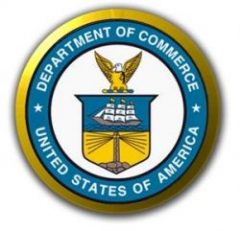 U.S. Secretary of Commerce Gina M. Raimondo announced today the allocation of more than $42 million to address fishery disasters that occurred in Alaska, California, Louisiana, Mississippi, Oregon and the Muckleshoot Indian Tribe and Yurok Tribe fisheries from 2017 to 2022. “Sustainable fisheries are essential to the health of our communities and support the nation’s economic well-being,” said Secretary Raimondo. “With these allocations, it is our hope that these funds help the affected communities and tribes recover from these disasters.” Today’s announcement applies to the following fishery disasters: Links, more, >>click to read<< 14:34
U.S. Secretary of Commerce Gina M. Raimondo announced today the allocation of more than $42 million to address fishery disasters that occurred in Alaska, California, Louisiana, Mississippi, Oregon and the Muckleshoot Indian Tribe and Yurok Tribe fisheries from 2017 to 2022. “Sustainable fisheries are essential to the health of our communities and support the nation’s economic well-being,” said Secretary Raimondo. “With these allocations, it is our hope that these funds help the affected communities and tribes recover from these disasters.” Today’s announcement applies to the following fishery disasters: Links, more, >>click to read<< 14:34
2023 was another bad year for chinook, fall chum salmon, Yukon River Panel hears
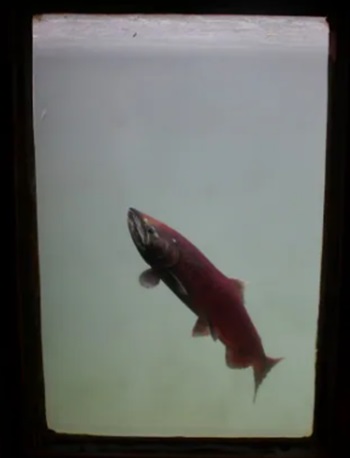 Alaska and Yukon representatives met in Whitehorse last week to discuss the 2023 chinook and fall chum salmon runs on the Yukon River, which once again failed to meet Canadian conservation goals. An estimated 58,529 chinook salmn entered the river last year, according to public presentations by the Alaska Department of Fish and Game, and Fisheries and Oceans Canada (DFO) during the Yukon River Panel’s post-season meeting. It was the second-smallest run on record — 2022 was the smallest — and not enough to meet spawning escapement goals on either side of the border. The goals set out the minimum range of fish that need to make it to their spawning areas to healthily sustain the population. more, >>click to read<< 13:51
Alaska and Yukon representatives met in Whitehorse last week to discuss the 2023 chinook and fall chum salmon runs on the Yukon River, which once again failed to meet Canadian conservation goals. An estimated 58,529 chinook salmn entered the river last year, according to public presentations by the Alaska Department of Fish and Game, and Fisheries and Oceans Canada (DFO) during the Yukon River Panel’s post-season meeting. It was the second-smallest run on record — 2022 was the smallest — and not enough to meet spawning escapement goals on either side of the border. The goals set out the minimum range of fish that need to make it to their spawning areas to healthily sustain the population. more, >>click to read<< 13:51
More boats sink, roofs collapse, avalanche danger remains high as snowfall pummels Juneau
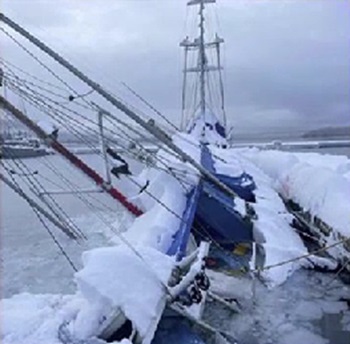 The City and Borough of Juneau put out a statement Wednesday that said avalanches have come down on Basin Road and above Behrends Avenue, the same spot where a slide occurred last week. A city official said that Basin Road is closed where it intersects with Eighth Street. Four boats sank in the city harbor early Wednesday morning, according to Juneau Harbormaster Matt Creswell, who said he is concerned more vessels are at risk of sinking due to the heavy snowfall. Creswell urged all boat owners to check on their boats immediately and clear off any snow they can. Juneau has seen over 28 inches of snow since Sunday alone and is up over 61 inches — or more than five feet — in the month of January. Video, photos, more, >>click to read<< 17:50
The City and Borough of Juneau put out a statement Wednesday that said avalanches have come down on Basin Road and above Behrends Avenue, the same spot where a slide occurred last week. A city official said that Basin Road is closed where it intersects with Eighth Street. Four boats sank in the city harbor early Wednesday morning, according to Juneau Harbormaster Matt Creswell, who said he is concerned more vessels are at risk of sinking due to the heavy snowfall. Creswell urged all boat owners to check on their boats immediately and clear off any snow they can. Juneau has seen over 28 inches of snow since Sunday alone and is up over 61 inches — or more than five feet — in the month of January. Video, photos, more, >>click to read<< 17:50
Petersburg Borough to join United Fisherman of Alaska
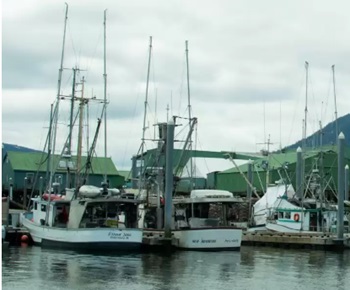 Petersburg will be the newest Community Supporting Member of the United Fishermen of Alaska, or UFA. That follows a unanimous vote by the Borough Assembly at their regular meeting last week. Vice Mayor Donna Marsh said she hopes the move will help boost the local fishing industry further down the line. “Commercial fishing is so integral to Petersburg,” said Marsh. “I think it would make sense to have the support of a professionally recognized organization [that is] also trying to keep that industry alive.” more, >>click to read<< 08:14
Petersburg will be the newest Community Supporting Member of the United Fishermen of Alaska, or UFA. That follows a unanimous vote by the Borough Assembly at their regular meeting last week. Vice Mayor Donna Marsh said she hopes the move will help boost the local fishing industry further down the line. “Commercial fishing is so integral to Petersburg,” said Marsh. “I think it would make sense to have the support of a professionally recognized organization [that is] also trying to keep that industry alive.” more, >>click to read<< 08:14
Coast Guard, good Samaritans rescue 4 people after fishing vessel capsized near Kodiak
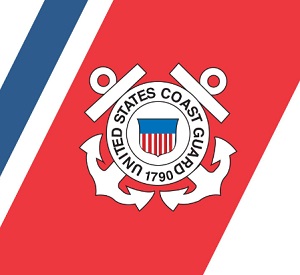 Coast Guard Sector Anchorage watchstanders received a report over VHF channel 16 at approximately 4:31p.m. from the crew of F/V Alaska Rose, a 46-foot fishing vessel, stating their vessel was taking on water. Watchstanders issued an urgent marine information broadcast on VHF channel 16 and launched a Coast Guard Air Station Kodiak MH-60 Jayhawk helicopter aircrew. The helicopter aircrew arrived on scene at approximately 4:56 p.m., located one person on the overturned vessel, hoisted them, and transferred them to Air Station Kodiak where they were met by local EMS. The crew of Good Samaritan vessel Kylia arrived on scene at approximately 5:02p.m., rescued three people from the water, and transferred them to Kodiak where they were met by local EMS. more, >>click to read<< 21:12
Coast Guard Sector Anchorage watchstanders received a report over VHF channel 16 at approximately 4:31p.m. from the crew of F/V Alaska Rose, a 46-foot fishing vessel, stating their vessel was taking on water. Watchstanders issued an urgent marine information broadcast on VHF channel 16 and launched a Coast Guard Air Station Kodiak MH-60 Jayhawk helicopter aircrew. The helicopter aircrew arrived on scene at approximately 4:56 p.m., located one person on the overturned vessel, hoisted them, and transferred them to Air Station Kodiak where they were met by local EMS. The crew of Good Samaritan vessel Kylia arrived on scene at approximately 5:02p.m., rescued three people from the water, and transferred them to Kodiak where they were met by local EMS. more, >>click to read<< 21:12
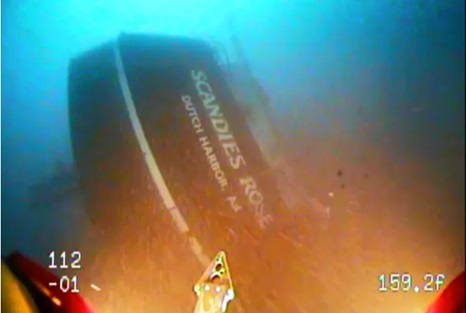
Read the final Coast Guard report on the 2019 sinking of F/V Scandies Rose in Gulf of Alaska
The U.S. Coast Guard Marine Board of Investigation has issued its final report on the sinking of the 130-foot crab vessel Scandies Rose on New Year’s Eve, 2019, a tragedy that took the lives of five men on board, including the captain. Two crew members, Dean Gribble Jr., of Edmonds, Wash., and Jon Lawler, of Anchorage, survived by reaching a life raft in the roiling the Gulf of Alaska; they were rescued by U.S. Coast Guard near Sutwick Island off the Alaska Peninsula. Captain Gary Cobban, Jr. and his son David, Seth Rousseau-Gano, Arthur Ganacias, and Brock Rainey died. Lawler died in a motorcycle accident on Oct. 31, 2021, leaving Gribble as the sole survivor of the disaster. The Marine Board of Investigations found a major factor in the sinking was the captain’s judgment. An earlier report by the National Transportation Safety Board was more guarded in assigning blame. more, >>click to read<< 08:19
Amidst divide between set net and seiner fleets, Board of Fisheries passes gear changes for both
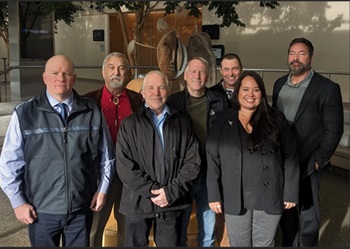 Alaska’s Board of Fisheries approved small changes for the local salmon set net and purse seine fleets at its meeting in Kodiak last week, January 9th – 12th, while opting to keep the status quo overall for the westside of the island’s management strategy. Of the 91 people who signed up to give public comments, roughly a third of them discussed seining or set nets (gillnets) and the proposals dealing with their respective fishing gear. Out of the 31 total proposals before the Board of Fisheries, about ten considered management changes between the gear groups. BOF oversees fisheries management within state waters. more, >>click to read<< 12:20
Alaska’s Board of Fisheries approved small changes for the local salmon set net and purse seine fleets at its meeting in Kodiak last week, January 9th – 12th, while opting to keep the status quo overall for the westside of the island’s management strategy. Of the 91 people who signed up to give public comments, roughly a third of them discussed seining or set nets (gillnets) and the proposals dealing with their respective fishing gear. Out of the 31 total proposals before the Board of Fisheries, about ten considered management changes between the gear groups. BOF oversees fisheries management within state waters. more, >>click to read<< 12:20
State sets much larger harvest guideline for Southeast golden king crab
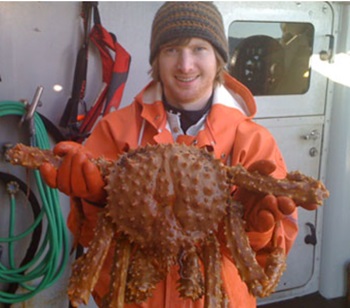 The commercial tanner crab and golden king crab season in Southeast opens at noon Feb 17. A change this year will require golden king crab fishermen to call in to the Department of Fish and Game every day to report which management area they plan to fish, to help fisheries staff better anticipate and manage the harvest. The department announced the golden king crab guideline harvest level in southern Southeast, Registration Area A, at 272,500 pounds, with specific areas seeing notable changes. The number is almost three times the size of last year’s guideline harvest, with most of the increase in a single portion of the region. The increase is the result of meetings between the fishing industry and state fisheries management. more, >>click to read<< 15:00
The commercial tanner crab and golden king crab season in Southeast opens at noon Feb 17. A change this year will require golden king crab fishermen to call in to the Department of Fish and Game every day to report which management area they plan to fish, to help fisheries staff better anticipate and manage the harvest. The department announced the golden king crab guideline harvest level in southern Southeast, Registration Area A, at 272,500 pounds, with specific areas seeing notable changes. The number is almost three times the size of last year’s guideline harvest, with most of the increase in a single portion of the region. The increase is the result of meetings between the fishing industry and state fisheries management. more, >>click to read<< 15:00
Major winter storm hits Juneau, sinking 3 docked boats
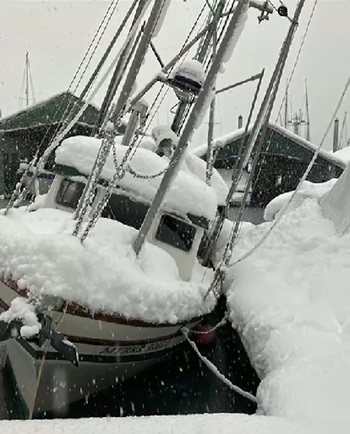 A prolonged winter storm is piling multiple feet of snow in some areas of Southeast Alaska, leading the National Weather Service to issue a winter prolonged winter storm and Petersburg. NWS described the storm as a “long duration snow event.”The snow is also contributing to dangerous conditions for harbored boats for Juneau and Petersburg. Docks & Harbors would like to remind all boat owners to make sure their vessels and structures are cleared of snow and all pumps are operating correctly, their boats are not taking on any water, and all mooring lines are secure,” Thatcher wrote. According to Juneau Harbormaster Matthew Creswell, heavy snow accumulation contributed to the sinking of three boats. Video, more, >>click to read<< 13:12
A prolonged winter storm is piling multiple feet of snow in some areas of Southeast Alaska, leading the National Weather Service to issue a winter prolonged winter storm and Petersburg. NWS described the storm as a “long duration snow event.”The snow is also contributing to dangerous conditions for harbored boats for Juneau and Petersburg. Docks & Harbors would like to remind all boat owners to make sure their vessels and structures are cleared of snow and all pumps are operating correctly, their boats are not taking on any water, and all mooring lines are secure,” Thatcher wrote. According to Juneau Harbormaster Matthew Creswell, heavy snow accumulation contributed to the sinking of three boats. Video, more, >>click to read<< 13:12
Op-Ed: Engineering insights when building a trawler
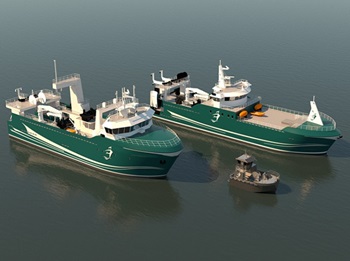 Constructing a new factory trawler fishing vessel in the United States is not an undertaking for the faint of heart. Thinking back to an article written about 10 years ago, industry scholars predicted a boom in shipbuilding to replace the Alaskan fishing fleet. While naval architects, shipyards and equipment suppliers saw a boom in their immediate future, the renewal of the fishing fleet has barely begun. In fact, less than 5% of the fishing trawlers in the Alaskan fishery have been replaced. The refrigerated seawater (RSW) catcher fleet has seen one large conversion join the ranks. The Amendment 80 fleet has seen three new construction vessels, along with one sponsoning and one conversion project. The American Fisheries Act (AFA) fleet has seen one new-build project completed. Vessels in all three fleets have seen significant upgrades in this time, but the underlying hulls still date from the 1980s and 90s with some going back as far as the 1960s and 70s. more, >>click to read<< 10:16
Constructing a new factory trawler fishing vessel in the United States is not an undertaking for the faint of heart. Thinking back to an article written about 10 years ago, industry scholars predicted a boom in shipbuilding to replace the Alaskan fishing fleet. While naval architects, shipyards and equipment suppliers saw a boom in their immediate future, the renewal of the fishing fleet has barely begun. In fact, less than 5% of the fishing trawlers in the Alaskan fishery have been replaced. The refrigerated seawater (RSW) catcher fleet has seen one large conversion join the ranks. The Amendment 80 fleet has seen three new construction vessels, along with one sponsoning and one conversion project. The American Fisheries Act (AFA) fleet has seen one new-build project completed. Vessels in all three fleets have seen significant upgrades in this time, but the underlying hulls still date from the 1980s and 90s with some going back as far as the 1960s and 70s. more, >>click to read<< 10:16
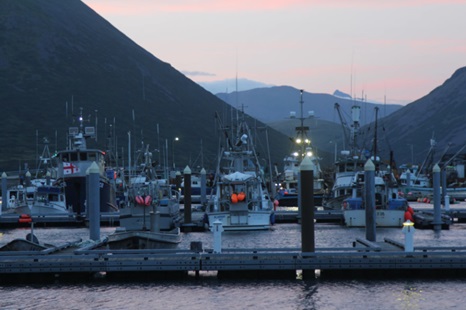
Peter Pan’s King Cove plant will stay closed this winter as fishing industry turmoil spreads
In a major hit to Southwest Alaska’s fishing industry, Peter Pan Seafood Co. will keep its huge plant in the village of King Cove shuttered this winter, meaning that the company won’t be processing millions of dollars’ worth of cod, whitefish and crab. “It’s one of the most difficult days of my life,” Rodger May, one of the company’s owners and a longtime player in the seafood industry, said in a brief interview Thursday. “It’s just a devastating time for the industry.” The closure is the latest sign of the widening turmoil in Alaska seafood markets, which are contending with depressed global demand across many different species and intense competition from producers in Russia. more, >>click to read<< 13:39
Bristol Bay Fishermen Celebrate Supreme Court Decision to Reject Alaska v. EPA
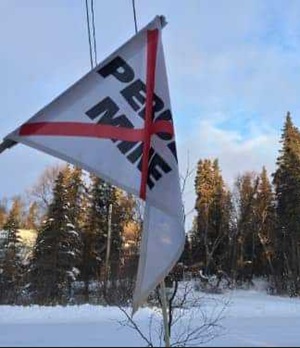 Monday, the United States Supreme Court announced their decision to reject the State of Alaska’s challenge of the Environmental Protection Agency’s (EPA) Clean Water Act veto of the proposed Pebble Mine. Commercial fishermen joined Bristol Bay Tribes and a majority of Alaskans in asking EPA to act to veto Pebble Mine over a decade ago. This protective action, finalized in January of 2023, ensured that Bristol Bay’s irreplaceable salmon runs – which sustain the people, culture as well as the foundation of a commercial fishing industry that generates more than $2 billion annually in economic output and supports more than 15,000 jobs – are not impacted by irresponsible open pit mining. more, >>click to read<< 14:05
Monday, the United States Supreme Court announced their decision to reject the State of Alaska’s challenge of the Environmental Protection Agency’s (EPA) Clean Water Act veto of the proposed Pebble Mine. Commercial fishermen joined Bristol Bay Tribes and a majority of Alaskans in asking EPA to act to veto Pebble Mine over a decade ago. This protective action, finalized in January of 2023, ensured that Bristol Bay’s irreplaceable salmon runs – which sustain the people, culture as well as the foundation of a commercial fishing industry that generates more than $2 billion annually in economic output and supports more than 15,000 jobs – are not impacted by irresponsible open pit mining. more, >>click to read<< 14:05
What is Captain Sig Hansen’s Net Worth and Salary?
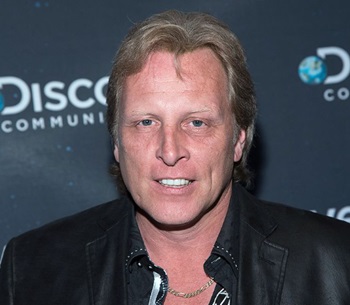 Sigurd Jonny Hansen entered the world on April 28, 1966, in Seattle, hailing from a proud lineage of Norwegian fishermen. At the tender age of 14, Sigurd embarked on his maritime journey, joining his father’s fishing vessel. His immersion in the world of fishing deepened, and upon completing high school, he transitioned into a full-time fisherman. It was during these formative years that Sig Hansen honed his expertise in navigating the challenging waters of Alaska and the Bering Sea. Over time, Sig Hansen progressively climbed the ranks aboard the Northwestern, ultimately assuming the role of relief skipper. At the age of 24, he ascended to the position of full-time captain of the vessel. Under his leadership, the Northwestern has maintained an exemplary track record, excelling in both safety and gross production. Notably, in 2005 and 2006, the Northwestern outperformed all other vessels featured on Deadliest Catch in terms of earnings. more, >>click to read<< 11:21
Sigurd Jonny Hansen entered the world on April 28, 1966, in Seattle, hailing from a proud lineage of Norwegian fishermen. At the tender age of 14, Sigurd embarked on his maritime journey, joining his father’s fishing vessel. His immersion in the world of fishing deepened, and upon completing high school, he transitioned into a full-time fisherman. It was during these formative years that Sig Hansen honed his expertise in navigating the challenging waters of Alaska and the Bering Sea. Over time, Sig Hansen progressively climbed the ranks aboard the Northwestern, ultimately assuming the role of relief skipper. At the age of 24, he ascended to the position of full-time captain of the vessel. Under his leadership, the Northwestern has maintained an exemplary track record, excelling in both safety and gross production. Notably, in 2005 and 2006, the Northwestern outperformed all other vessels featured on Deadliest Catch in terms of earnings. more, >>click to read<< 11:21
Photo Release: Coast Guard tows disabled fishing vessel to Adak, Alaska
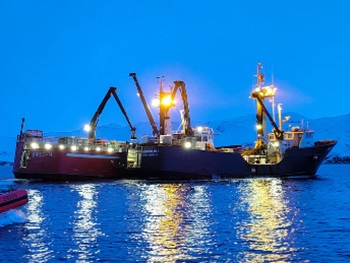 The crew of Coast Guard Cutter Alex Haley (WMEC 39) towed a disabled fishing vessel with eight people aboard to Adak, Monday. Alex Haley successfully towed the 127-foot fishing vessel Aleutian No. 1 into Adak and transferred to fishing vessel Erla-N. Erla-N then towed the disabled vessel into Adak where it was moored at the pier at 11:30 a.m. with the help of Alex Haley’s cutter boats. At 1:00 a.m. Saturday, the Alex Haley arrived on scene and took Aleutian No. 1 in tow before transiting over 160 miles to Adak. Watchstanders in the 17th District command center received initial notification from the master of Aleutian No. 1 at 5:57 a.m., Thursday, reporting they had fouled their prop, were unable to conduct repairs and were drifting approximately three miles north of Amchitka Island, 575 miles southwest of Dutch Harbor.3 photos, more, >>click to read<< 08:49
The crew of Coast Guard Cutter Alex Haley (WMEC 39) towed a disabled fishing vessel with eight people aboard to Adak, Monday. Alex Haley successfully towed the 127-foot fishing vessel Aleutian No. 1 into Adak and transferred to fishing vessel Erla-N. Erla-N then towed the disabled vessel into Adak where it was moored at the pier at 11:30 a.m. with the help of Alex Haley’s cutter boats. At 1:00 a.m. Saturday, the Alex Haley arrived on scene and took Aleutian No. 1 in tow before transiting over 160 miles to Adak. Watchstanders in the 17th District command center received initial notification from the master of Aleutian No. 1 at 5:57 a.m., Thursday, reporting they had fouled their prop, were unable to conduct repairs and were drifting approximately three miles north of Amchitka Island, 575 miles southwest of Dutch Harbor.3 photos, more, >>click to read<< 08:49
Athearn Marine Agency Boat of the Week: 84′ Raised Foc’sle Scalloper/ Dragger, 940HP, Cummins KT-2300
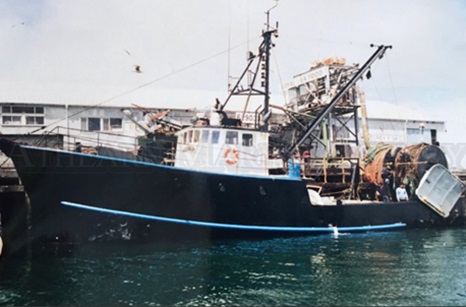 To review specifications, information, and 33 photos’,>click here<, To see all the boats in this series, >click here< 07: 43
To review specifications, information, and 33 photos’,>click here<, To see all the boats in this series, >click here< 07: 43
Bristol Bay’s 2023 year in review
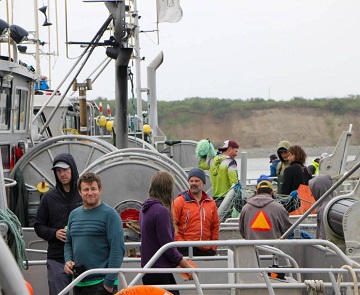 January started out with communities contending with an egg shortage, as an outbreak of avian flu in Washington state drastically slowed shipments north. Slavii stars circulated around the region for Orthodox Christmas with some precautions in place to protect community members from the flu virus and Covid-19. Dozens of people attended the Bristol Bay Native Corporation’s free online language classes in Yup’ik, Dena’ina and Alutiiq. The corporation also offered song and dance classes. And at the end of the month, many in Bristol Bay saw a years-long effort validated with the Environmental Protection Agency vetoing the controversial Pebble Mine project. Photos, more, >>click to read<< 12:35
January started out with communities contending with an egg shortage, as an outbreak of avian flu in Washington state drastically slowed shipments north. Slavii stars circulated around the region for Orthodox Christmas with some precautions in place to protect community members from the flu virus and Covid-19. Dozens of people attended the Bristol Bay Native Corporation’s free online language classes in Yup’ik, Dena’ina and Alutiiq. The corporation also offered song and dance classes. And at the end of the month, many in Bristol Bay saw a years-long effort validated with the Environmental Protection Agency vetoing the controversial Pebble Mine project. Photos, more, >>click to read<< 12:35
Help Alaska’s fisheries: Reduce methane emissions
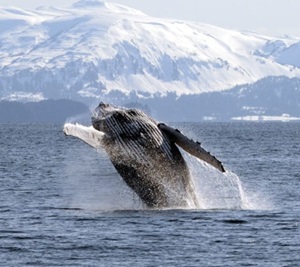 NOAA now confirms that another critical Alaska fishery is in decline due to successive marine heat waves. First there was the loss of 10 billion snow crabs and the close of the once-lucrative Bering Sea crab fisheries; now we know that climate change (warming seas) is the culprit behind the crash of chum salmon on the Yukon-Kuskokwim. Both these fisheries are the life blood to many Alaskan communities and villages. From the Yukon to Kodiak, from the Arctic to Ketchikan, Alaska’s coastal fisheries must now confront the dual threat of heat waves and ocean acidification. more, >>click to read<< By Linda Behnken and Kate Troll 15:48
NOAA now confirms that another critical Alaska fishery is in decline due to successive marine heat waves. First there was the loss of 10 billion snow crabs and the close of the once-lucrative Bering Sea crab fisheries; now we know that climate change (warming seas) is the culprit behind the crash of chum salmon on the Yukon-Kuskokwim. Both these fisheries are the life blood to many Alaskan communities and villages. From the Yukon to Kodiak, from the Arctic to Ketchikan, Alaska’s coastal fisheries must now confront the dual threat of heat waves and ocean acidification. more, >>click to read<< By Linda Behnken and Kate Troll 15:48
Ecosystem reports show continuing effects of warming in Alaska’s marine waters
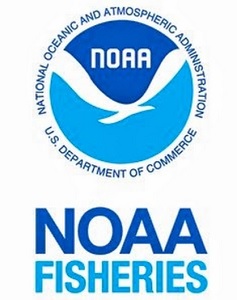 The waters off Alaska’s Aleutian Islands registered the warmest winter temperatures in over a century, part of a decade-long period of warming, according to a report issued by the National Oceanic and Atmospheric Administration. The Aleutians report is one of three annual ecosystem status reports issued by NOAA Fisheries for marine areas of Alaska. The reports, compiled by large teams of scientists, were released earlier this month and presented to the North Pacific Fishery Management Council, the panel that sets regulated commercial fishing in federal waters off Alaska. The Bering Sea remains warmer than the long-term average, though it has cooled since the heatwaves, NOAA Fisheries biologist Elizabeth Siddon told the North Pacific Fishery Management Council in her presentation of the report. more, >>click to read<< 07:53
The waters off Alaska’s Aleutian Islands registered the warmest winter temperatures in over a century, part of a decade-long period of warming, according to a report issued by the National Oceanic and Atmospheric Administration. The Aleutians report is one of three annual ecosystem status reports issued by NOAA Fisheries for marine areas of Alaska. The reports, compiled by large teams of scientists, were released earlier this month and presented to the North Pacific Fishery Management Council, the panel that sets regulated commercial fishing in federal waters off Alaska. The Bering Sea remains warmer than the long-term average, though it has cooled since the heatwaves, NOAA Fisheries biologist Elizabeth Siddon told the North Pacific Fishery Management Council in her presentation of the report. more, >>click to read<< 07:53
Analysis of Northwest, other salmon hatcheries finds nearly all hurt wild salmon populations
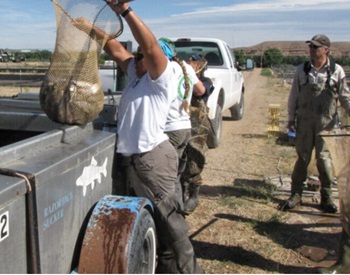 For much of the last century, fish hatcheries have been built in the Northwest, across the U.S. and around the world to boost fish populations where wild numbers have gone down. But an analysis of more than 200 studies on hatcheries programs meant to boost salmonid numbers across the globe – including salmon, trout and whitefish – shows that nearly all have had negative impacts on the wild populations of those fish. Most commonly, hatchery fish reduced the genetic diversity of wild fish, leading to poor health and reproductive outcomes. The findings weigh into a sensitive topic with a big price tag. In the Northwest, hatcheries are supposed to be a solution to declining wild salmonid numbers, caused in large part by hydroelectric dams, overfishing, irrigation and climate change. In the Columbia River Basin alone, officials have spent billions of dollars on nearly 200 hatcheries as well as habitat restoration projects during the past 50 years to improve wild numbers, but research shows those programs are having an opposite effect. more, >>click to read<< 12:34
For much of the last century, fish hatcheries have been built in the Northwest, across the U.S. and around the world to boost fish populations where wild numbers have gone down. But an analysis of more than 200 studies on hatcheries programs meant to boost salmonid numbers across the globe – including salmon, trout and whitefish – shows that nearly all have had negative impacts on the wild populations of those fish. Most commonly, hatchery fish reduced the genetic diversity of wild fish, leading to poor health and reproductive outcomes. The findings weigh into a sensitive topic with a big price tag. In the Northwest, hatcheries are supposed to be a solution to declining wild salmonid numbers, caused in large part by hydroelectric dams, overfishing, irrigation and climate change. In the Columbia River Basin alone, officials have spent billions of dollars on nearly 200 hatcheries as well as habitat restoration projects during the past 50 years to improve wild numbers, but research shows those programs are having an opposite effect. more, >>click to read<< 12:34






